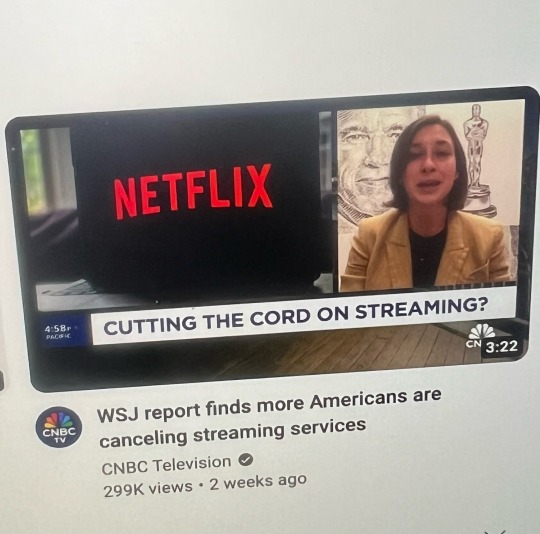#ad platform
Text
Telegram's Foray into Ad Revenue: TON Blockchain to Revolutionize Channel Monetization
In a strategic move set to reshape the dynamics of channel monetization, Telegram's CEO Pavel Durov revealed the imminent launch of the company's ad platform on The Open Network (TON) blockchain. The platform introduces a revolutionary ad revenue-sharing system, empowering channel owners across 100 countries to receive financial rewards in Toncoin.
As of March, Telegram channel owners are slated to receive 50% of the total advertising revenue generated by Telegram, ushering in a new era of monetization possibilities. To qualify for these rewards, channel owners need to display ads within their channels, marking a significant shift in the traditional advertising paradigm.
Telegram's decision to leverage TON for its ad platform is rooted in the blockchain's capacity to facilitate swift and secure reward payments. Pavel Durov emphasized the platform's commitment to ensuring a seamless process for ad payments and withdrawals, cementing TON's role in this transformative endeavor.
The official launch of the Telegram Ad Platform in March is poised to welcome advertisers from nearly a hundred new countries. Channel owners in these regions will partake in a 50% revenue-sharing arrangement, unlocking fresh opportunities for financial growth through Telegram's ad display.
Durov shed light on the existing landscape, where despite Telegram's broadcast channels amassing an astounding one trillion views per month, only a fraction (10%) is monetized through Telegram Ads. The collaborative effort with the TON network aims to rectify this, offering channel owners the chance to monetize their content effectively. Durov highlighted the potential of creating a positive cycle where content creators can either cash out their Toncoins or reinvest them for channel promotion and upgrades.
In response to the announcement, Toncoin experienced a substantial surge, reaching $2.65. With a remarkable daily surge of 22.04%, a weekly surge of 23.57%, and a monthly surge of 23.66%, Toncoin secures its position at the 15th spot on CoinMarketCap, boasting a market cap of $9,116,531,460.
0 notes
Text
How Entertainment ads Value of Online Advertising
In today's digital age, the entertainment industry has witnessed a significant shift in advertising strategies, with entertainment ads emerging as a powerful tool to engage audiences and promote brands. This article explores the value of online advertising in the entertainment sector, highlighting its evolution, impact on audience engagement and brand awareness, and the challenges and future trends faced by entertainment companies. By delving into best practices, case studies, and the measurement of effectiveness and return on investment, we aim to provide insights into the growing importance of entertainment ads and their potential to revolutionize the entertainment landscape.

The Evolution of Online Advertising Strategies in Entertainment Ads
Traditional advertising methods
In earlier times, entertainment companies predominantly depended on conventional advertising approaches like billboards, radio spots, and TV commercials. Although these methods still carry significance, they can be costly and often fall short in comparison to the precise targeting capabilities offered by modern entertainment ads online.
Transition to digital platforms
With the advent of the internet, media & entertainment companies started to shift their focus towards digital platforms. Websites, email marketing, and banner ads became common strategies for reaching audiences online. This transition allowed for greater flexibility, as digital advertising offered more affordable options and better tracking capabilities.
Emergence of targeted advertising
One of the most significant advancements in online advertising for the advertising and entertainment sector has been the emergence of targeted advertising. With the wealth of data available on consumer behavior and preferences, companies can now create highly tailored campaigns. This means that ads are being shown to the right people, at the right time, making them more likely to engage with the content.
Maximizing Reach and Targeting through Entertainment Ads on Online Advertising Channels
Understanding different online advertising channels
Online advertising channels are diverse and offer unique opportunities for reaching audiences. From search engine advertising to display ads on websites and mobile apps, each channel presents its own advantages and target demographics. By understanding the strengths of each channel, entertainment companies can effectively allocate their advertising budgets to drive maximum engagement and reach.
Leveraging social media platforms for targeted advertising
Social media platforms have become a goldmine for targeted advertising. With billions of users and the ability to collect data on their interests and behaviors, platforms like Facebook, Instagram, and Twitter offer unparalleled targeting capabilities. Entertainment companies can create engaging ads that resonate with their target audience and reach potential fans who are most likely to engage with their content.
Utilizing programmatic advertising for precise targeting
Programmatic advertising has revolutionized the way entertainment companies target their audience. By using automated systems and algorithms, programmatic advertising allows for precise targeting based on factors such as demographics, location, interests, and browsing behavior. This not only increases the chances of reaching the right audience but also reduces wasted ad spend by eliminating irrelevant impressions.
The Impact of Entertainment Ads on Audience Engagement and Brand Awareness through Online Advertising
Enhancing audience engagement through interactive ads
One of the standout benefits of online advertising is the ability to create interactive and engaging ads. From interactive videos to gamified experiences, entertainment companies can captivate audiences and encourage active participation. This not only creates a memorable experience but also drives higher engagement and increases the likelihood of conversions.
Increasing brand awareness with compelling online campaigns
Online advertising enables entertainment companies to create compelling campaigns that leave a lasting impression on viewers. Whether it's a visually stunning video ad or a captivating display campaign, a well-crafted online campaign has the potential to generate buzz and increase brand awareness. By leveraging storytelling and creative visuals, companies can establish a strong brand presence and resonate with their target audience.
Utilizing influencers and content creators for brand promotion
Collaborating with influencers and content creators has become a popular strategy for entertainment companies to promote their brands. By partnering with individuals who have a strong online presence and a dedicated following, companies can tap into their influence and reach a wider audience. This form of promotion adds authenticity and credibility to the brand, resulting in increased brand awareness and potential conversions.
Conclusion:
In conclusion, the value of online advertising, especially in the realm of entertainment ads, cannot be overstated. The entertainment industry has undergone a profound transformation in its advertising strategies, shifting from traditional, costly methods to the dynamic and cost-effective landscape of online advertising.
FAQ
How has online advertising transformed the entertainment industry?
Online advertising has revolutionized the entertainment industry by providing targeted and measurable advertising solutions. It allows entertainment companies to reach their specific target audience more effectively, engage with viewers through interactive ads, and increase brand awareness through various online channels.
How can entertainment companies measure the effectiveness of their online advertising campaigns?
Measuring the effectiveness of online advertising campaigns in the entertainment industry involves analyzing key performance indicators such as click-through rates, conversion rates, and engagement metrics. Additionally, tools and techniques, such as tracking pixels and analytics software, can provide valuable insights into the ROI and success of these campaigns.
What are the future trends in online advertising for entertainment companies?
The future of online advertising in the entertainment industry is characterized by advancements in technologies such as programmatic advertising, augmented reality (AR), and virtual reality (VR). Additionally, personalized and targeted advertising experiences, integration of influencer marketing, and the use of data-driven insights are expected to shape the future landscape of online advertising for entertainment companies.
#entertainment ads#entertainment marketing#ad platform#media & entertainment#media entertainment examples#entertainment advertising agencies#entertainment ad#advertising and entertainment#entertainment ppc#best ads platform#home entertainment advertising
1 note
·
View note
Text

Kirby 64: The Crystal Shards (HAL Laboratory, Nintendo, 2000) magazine ad for Nintendo 64.
#kirby 64: the crystal shards#HAL laboratory#nintendo#nintendo 64#2.5D platformer#kirby 64#kirby#magazine ad#2000s#N64
1K notes
·
View notes
Text

YM, September 1998.
#had this magazine flip through asmr going in the background heard blood & had to look#it’s a schlick razor ad unfortunately#wish i could find a scan of this#the pigtails w daisies + denim dress is cute#1998#1990s#platforms
1K notes
·
View notes
Text
This is your brain on fraud apologetics

In 1998, two Stanford students published a paper in Computer Networks entitled “The Anatomy of a Large-Scale Hypertextual Web Search Engine,” in which they wrote, “Advertising funded search engines will be inherently biased towards the advertisers and away from the needs of consumers.”
https://research.google/pubs/pub334/
If you’d like an essay-formatted version of this post to read or share, here’s a link to it on pluralistic.net, my surveillance-free, ad-free, tracker-free blog:
https://pluralistic.net/2023/02/24/passive-income/#swiss-cheese-security
The co-authors were Lawrence Page and Sergey Brin, and the “large-scale hypertextual web search-engine” they were describing was their new project, which they called “Google.” They were 100% correct — prescient, even!
On Wednesday night, a friend came over to watch some TV with us. We ordered out. We got scammed. We searched for a great local Thai place we like called Kiin and clicked a sponsored link for a Wix site called “Kiinthaila.com.” We should have clicked the third link down (kiinthaiburbank.com).
We got scammed. The Wix site was a lookalike for Kiin Thai, which marked up their prices by 15% and relayed the order to our local, mom-and-pop, one-branch restaurant. The restaurant knew it, too — they called us and told us they were canceling the order, and said we could still come get our food, but we’d have to call Amex to reverse the charge.
As it turned out, the scammers double-billed us for our order. I called Amex, who advised us to call back in a couple days when the charge posted to cancel it — in other words, they were treating it as a regular customer dispute, and not a systemic, widespread fraud (there’s no way this scammer is just doing this for one restaurant).
In the grand scheme of things, this is a minor hassle, but boy, it’s haunting to watch the quarter-century old prophecy of Brin and Page coming true. Search Google for carpenters, plumbers, gas-stations, locksmiths, concert tickets, entry visas, jobs at the US Post Office or (not making this up) tech support for Google products, and the top result will be a paid ad for a scam. Sometimes it’s several of the top ads.
This kind of “intermediation” business is actually revered in business-schools. As Douglas Rushkoff has written, the modern business wisdom reveres “going meta” — not doing anything useful, but rather, creating a chokepoint between people who do useful things and people who want to pay for those things, and squatting there, collecting rent:
https://rushkoff.medium.com/going-meta-d42c6a09225e
It’s the ultimate passive income/rise and grind side-hustle: It wouldn’t surprise me in the least to discover a whole festering nest of creeps on Tiktok talking about how they pay Mechanical Turks to produce these lookalike sites at scale.
This mindset is so pervasive that people running companies with billions in revenue and massive hoards of venture capital run exactly the same scam. During lockdown, companies like Doordash, Grubhub and Uber Eats stood up predatory lookalike websites for local restaurants, without their consent, and played monster-in-the-middle, tricking diners into ordering through them:
https://pluralistic.net/2020/09/19/we-are-beautiful/#man-in-the-middle
These delivery app companies were playing a classic enshittification game: first they directed surpluses to customers to lock them in (heavily discounting food), then they directed surplus to restaurants (preferential search results, free delivery, low commissions) — then, having locked in both consumers and producers, they harvested the surplus for themselves.
Today, delivery apps charge massive premiums to both eaters and restaurants, load up every order with junk fees, and clone the most successful restaurants out of ghost kitchens — shipping containers in parking lots crammed with low-waged workers cranking out orders for 15 different fake “virtual restaurants”:
https://pluralistic.net/2020/12/01/autophagic-buckeyes/#subsidized-autophagia
Delivery apps speedran the enshittification cycle, but Google took a slower path to get there. The company has locked in billions of users (e.g. by paying billions to be the default search on Safari and Firefox and using legal bullying to block third party Android device-makers from pre-installing browsers other than Chrome). For years, it’s been leveraging our lock-in to prey on small businesses, getting them to set up Google Business Profiles.
These profiles are supposed to help Google distinguish between real sellers and scammers. But Kiin Thai has a Google Business Profile, and searching for “kiin thai burbank” brings up a “Knowledge Panel” with the correct website address — on a page that is headed with a link to a scam website for the same business. Google, in other words, has everything it needs to flag lookalike sites and confirm them with their registered owners. It would cost Google money to do this — engineer-time to build and maintain the system, content moderator time to manually check flagged listings, and lost ad-revenue from scammers — but letting the scams flourish makes Google money, at the expense of Google users and Google business customers.
Now, Google has an answer for this: they tell merchants who are being impersonated by ad-buying scammers that all they need to do is outbid them for the top ad-spot. This is a common approach — Amazon has a $31b/year “ad business” that’s mostly its own platform sellers bidding against each other to show you fake results for your query. The first five screens of Amazon search results are 50% ads:
https://pluralistic.net/2022/11/28/enshittification/#relentless-payola
This is “going meta,” so naturally, Meta is doing it too: Facebook and Instagram have announced a $12/month “verification” badge that will let you report impersonation and tweak the algorithm to make it more likely that the posts you make are shown to the people who explicitly asked to see them:
https://www.vox.com/recode/2023/2/21/23609375/meta-verified-twitter-blue-checkmark-badge-instagram-facebook
The corollary of this, of course, is that if you don’t pay, they won’t police your impersonators, and they won’t show your posts to the people who asked to see them. This is pure enshittification — the surplus from users and business customers is harvested for the benefit of the platform owners:
https://pluralistic.net/2023/01/21/potemkin-ai/#hey-guys
The idea that merchants should master the platforms as a means of keeping us safe from their impersonators is a hollow joke. For one thing, the rules change all the time, as the platforms endlessly twiddle the knobs that determine what gets shown to whom:
https://doctorow.medium.com/twiddler-1b5c9690cce6
And they refuse to tell anyone what the rules are, because if they told you what the rules were, you’d be able to bypass them. Content moderation is the only infosec domain where “security through obscurity” doesn’t get laughed out of the room:
https://doctorow.medium.com/como-is-infosec-307f87004563
Worse: the one thing the platforms do hunt down and exterminate with extreme prejudice is anything that users or business-customers use to twiddle back — add-ons and plugins and jailbreaks that override their poor choices with better ones:
https://www.theverge.com/2022/9/29/23378541/the-og-app-instagram-clone-pulled-from-app-store
As I was submitting complaints about the fake Kiin scam-site (and Amex’s handling of my fraud call) to the FTC, the California Attorney General, the Consumer Finance Protection Bureau and Wix, I wrote a little Twitter thread about what a gross scam this is:
https://twitter.com/doctorow/status/1628948906657878016
The thread got more than two million reads and got picked up by Hacker News and other sites. While most of the responses evinced solidarity and frustration and recounted similar incidents in other domains, a significant plurality of the replies were scam apologetics — messages from people who wanted to explain why this wasn’t a problem after all.
The most common of these was victim-blaming: “you should have used an adblocker” or “never click the sponsored link.” Of course, I do use an ad-blocker — but this order was placed with a mobile browser, after an absentminded query into the Google search-box permanently placed on the home screen, which opens results in Chrome (where I don’t have an ad-blocker, so I can see material behind an ad-blocker-blocker), not Firefox (which does have an ad-blocker).
Now, I also have a PiHole on my home LAN, which blocks most ads even in a default browser — but earlier this day, I’d been on a public wifi network that was erroneously blocking a website (the always excellent superpunch.net) so I’d turned my wifi off, which meant the connection came over my phone’s 5G connection, bypassing the PiHole:
https://pluralistic.net/2022/04/28/shut-yer-pi-hole/
“Don’t click a sponsored link” — well, the irony here is that if you habitually use a browser with an ad-blocker, and you backstop it with a PiHole, you never see sponsored links, so it’s easy to miss the tiny “Sponsored” notification beside the search result. That goes double if you’re relaxing with a dinner guest on the sofa and ordering dinner while chatting.
There’s a name for this kind of security failure: the Swiss Cheese Model. We all have multiple defenses (in my case: foreknowledge of Google’s ad-scam problem, an ad-blocker in my browser, LAN-wide ad sinkholing). We also have multiple vulnerabilities (in my case: forgetting I was on 5G, being distracted by conversation, using a mobile device with a permanent insecure search bar on the homescreen, and being so accustomed to ad-blocked results that I got out of the habit of checking whether a result was an ad).
If you think you aren’t vulnerable to scams, you’re wrong — and your confidence in your invulnerability actually increases your risk. This isn’t the first time I’ve been scammed, and it won’t be the last — and every time, it’s been a Swiss Cheese failure, where all the holes in all my defenses lined up for a brief instant and left me vulnerable:
https://locusmag.com/2010/05/cory-doctorow-persistence-pays-parasites/
Other apologetics: “just call the restaurant rather than using its website.” Look, I know the people who say this don’t think I have a time-machine I can use to travel back to the 1980s and retrieve a Yellow Pages, but it’s hard not to snark at them, just the same. Scammers don’t just set up fake websites for your local businesses — they staff them with fake call-centers, too. The same search that takes you to a fake website will also take you to a fake phone number.
Finally, there’s “What do you expect Google to do? They can’t possibly detect this kind of scam.” But they can. Indeed, they are better situated to discover these scams than anyone else, because they have their business profiles, with verified contact information for the merchants being impersonated. When they get an ad that seems to be for the same business but to a different website, they could interrupt the ad process to confirm it with their verified contact info.
Instead, they choose to avoid the expense, and pocket the ad revenue. If a company promises to “to organize the world’s information and make it universally accessible and useful,” I think we have the right to demand these kinds of basic countermeasures:
https://www.google.com/search/howsearchworks/our-approach/
The same goes for Amex: when a merchant is scamming customers, they shouldn’t treat complaints as “chargebacks” — they should treat them as reports of a crime in progress. Amex has the bird’s eye view of their transaction flow and when a customer reports a scam, they can backtrack it to see if the same scammer is doing this with other merchants — but the credit card companies make money by not chasing down fraud:
https://www.buzzfeednews.com/article/rosalindadams/mastercard-visa-fraud
Wix also has platform-scale analytics that they could use to detect and interdict this kind of fraud — when a scammer creates a hundred lookalike websites for restaurants and uses Wix’s merchant services to process payments for them, that could trigger human review — but it didn’t.
Where do all of these apologetics come from? Why are people so eager to leap to the defense of scammers and their adtech and fintech enablers? Why is there such an impulse to victim-blame?
I think it’s fear: in their hearts, people — especially techies — know that they, too, are vulnerable to these ripoffs, but they don’t want to admit it. They want to convince themselves that the person who got scammed made an easily avoidable mistake, and that they themselves will never make a similar mistake.
This is doubly true for readerships on tech-heavy forums like Twitter or (especially) Hacker News. These readers know just how many vulnerabilities there are — how many holes are in their Swiss cheese — and they are also overexposed to rise-and-grind/passive income rhetoric.
This produces a powerful cognitive dissonance: “If all the ‘entrepreneurs’ I worship are just laying traps for the unwary, and if I am sometimes unwary, then I’m cheering on the authors of my future enduring misery.” The only way to resolve this dissonance — short of re-evaluating your view of platform capitalism or questioning your own immunity to scams — is to blame the victim.
The median Hacker News reader has to somehow resolve the tension between “just install an adblocker” and “Chrome’s extension sandbox is a dumpster fire and it’s basically impossible to know whether any add-on you install can steal every keystroke and all your other data”:
https://mattfrisbie.substack.com/p/spy-chrome-extension
In my Twitter thread, I called this “the worst of all possible timelines.” Everything we do is mediated by gigantic, surveillant monopolists that spy on us comprehensively from asshole to appetite — but none of them, not a 20th century payment giant nor a 21st century search giant — can bestir itself to use that data to keep us safe from scams.
Next Thu (Mar 2) I'll be in Brussels for Antitrust, Regulation and the Political Economy, along with a who's-who of European and US trustbusters. It's livestreamed, and both in-person and virtual attendance are free:
https://www.brusselsconference.com/registration
On Fri (Mar 3), I'll be in Graz for the Elevate Festival:
https://elevate.at/diskurs/programm/event/e23doctorow/
[Image ID: A modified version of Hieronymus Bosch's painting 'The Conjurer,' which depicts a scam artist playing a shell-game for a group of gawking rubes. The image has been modified so that the scam artist's table has a Google logo and the pea he is triumphantly holding aloft bears the 'Sponsored' wordmark that appears alongside Google search results.]
#pluralistic#victim blaming#fraud#going meta#douglas rushkoff#ad-tech#local search#wix#amex#thai food#business#rent-seeking#entrepreneurship#passive income#chokepoint capitalism#platform lawyers
2K notes
·
View notes
Text

staff logging on to tumblr dot com today
#staff sweetie i Promise you an algorithm would kill this webbed site#changing the way reblogs look/work would Absolutely kill this webbed site too#this is a Blogging Platform i dont want it to be like tiktok or twitter jesus#if you NEED to change something literally listen to the the Tumblr Users you pretend you cant hear#if money is what you need make your userbase Happy and you should be fine#the shop is fine blaze posts are fine ad free subscriptions are fine but dont get rid of shit that Works For You in favor of making money#someone really laced up their clown boots today im. so tired staff please dont#tumblr staff#EDIT: staff updated their original post to say we were all misunderstanding but#that doesnt stop the post from being stupid#the whole post was worded for Investors and then presented to the userbase#if you say 'we have big changes planned!' and dont put in the 'as options' its Your Fault that people read it as 'were changing everything'#staff isnt stupid. they know how they Should have worded it better than what they did#so yeah. someone Did lace up their clown boots before they hit post#edit pt 2 lol for the record i dont think tumblr would actually go through with all their changes in that post#they know how the userbase is and there are A Lot of us#i just dont like how? idk. condescending? the post sounded#and out of every place on the internet being being burned alive in the name of money#tumblr is the one place i know enough about to be Actually mad at lol#ive really liked some stuff staff has done in recent years#but talking to your userbase that way wasnt one
913 notes
·
View notes
Text
how badly would I hurt the Pissa nation if I said I think that q!Phil and q!Missa only sleep well beside each other because they view the other as safe from the harm they cause. They can snuggle and cry and be cozy and sappy because they both have their own connections with death and because of that they view the other as protected from it when they hold each other. That they can’t die because of the other
now what if I add that arguably q!Phil’s worst moments were when he couldnt be near Missa, his safe haven and comfort
#okay ima run off this platform for this#we were happy for too long#we need that angst to get that comfort#qsmp#qsmp philza#qsmp missa#qsmp death duo#q!missa#q!philza#death duo#pissa#pissa nation#i’m just going to keep adding to it#make it as sad as i can
183 notes
·
View notes
Text

Ring: Infinity ad print for Famitsu Magazine n°599 (2000) Handle-held Platform: WonderSwan
#ring#infinity#リング ∞#ad#print#famitsu#magazine#2000#y2k#y2k aesthetic#survival#horror#visual#novel#handheld#platform#wonderswan#graphic design#japan
625 notes
·
View notes
Text

Esquire Instant Coloring fabric paint ad (1973)
#esquire instant coloring#arts and crafts#70s fashion#1973#1970s fashion#boots#accessories#platform shoes#retro ads
105 notes
·
View notes
Text
when did the tumblr culture around asks change so much? ive been thinking about it alot recently and its something i already do think about time to time, like... what happened? they used to be such a huge part of the community and suddenly fell off.
i think in 2024 maybe we should work to bring back the larger ask culture. start more random conversations with others, create and share more ask games, maybe say something nice to the people you follow, drop off a silly meme or just pop in and say hi!
#dragging this one out of drafts and added onto it#i was thinking about that reblog more creative works post in the shower#and tangentially starting thinking about how much asks/submissions have changed in recent years#and i dont think it has to do with the bots/scams bc we always had those#just havent been seeing asks used around much on the dash or in tags like they used to in the last couple years#and you know theyre such a fun way to start conversations about things or an easy platform for someone to talk about things they enjoy#im gonna try to send more asks to people myself
112 notes
·
View notes
Text
my least favourite thing from the watcher discourse has been people saying “WE never asked for higher quality” or “your most popular shows are where you just sit around and talk!!” - babes its likely not what THEY want to do for the rest of eternity lol. they’re allowed to want to grow as creatives and make things they are proud of?
#like i absolutely didn’t agree with their move to a paid model platform but this response isn’t the criticism u think it is#that and also the continious shit i saw about steven owning a tesla#like babes its HIS money? he’s allowed nice things and upgrades in his life lol?#AND the stuff about them making 100k from patreon with eat the rich comments#100k per month likely doesn’t cover all operating costs like you guys r thinking it does#they likely didn’t want to keep doing ad reads that interrupted their content structure and how they THEMSELVES percieved its value#as a former business major tho i def think even a little bit of market research could have stopped this lol#respectfully no one wants to pay for another thing#and the communication on it was unfortunately shit#but its not that big of a mistake that we tear em down like this#watcher#ryan bergara#shane madej#steven lim
62 notes
·
View notes
Text
[puts on my business hat]: I can't believe watcher is leaving youtube to create their own streaming service in a market where some of the biggest companies are trying to get out of the streaming business bc they've discovered how unprofitable of a business model it is.
#netflix and amazon both have ads now#warner bros is still recovering from the max launch and trying to merge with paramount plus?#disney just fought off an activist investor whose gripe (of MANY) was about the money sink disney plus turned into#would be super curious to know what VC they got to invest in their platform#also wondering why they didn't try to partner with an already existing streamer#so many questions so few answers#watcher
54 notes
·
View notes
Text


Kabbu and the twinks that torment him (plus Vi)
#bug fables#kabbu#leif#zasp#professor neolith#vi#suggestive#I have this curse where everytime I draw vi she looks like a 90s ad for some american platforming game#dentart#kabbenoeliefzasp
100 notes
·
View notes
Text

バンジョーとカズーイの大冒険
Banjo to Kazooie no Daibouken
Banjo-Kazooie (Rare, Nintendo, 1998) Japanese advertising for Nintendo 64.
#banjo-kazooie#rareware#nintendo#nintendo 64#banjo kazooie#rare#3D platformer#adventure#ad#Japanese#N64#バンジョーとカズーイの大冒険#Banjo to Kazooie no Daibouken
137 notes
·
View notes
Text
Everything advertised on social media is overpriced junk

In “Behavioral Advertising and Consumer Welfare: An Empirical Investigation,” a trio of business researchers from Carnegie Mellon and Pamplin College investigate the difference between the goods purchased through highly targeted online ads and just plain web-searches, and conclude social media ads push overpriced junk:
https://papers.ssrn.com/sol3/papers.cfm?abstract_id=4398428
If you’d like an essay-formatted version of this thread to read or share, here’s a link to it on pluralistic.net, my surveillance-free, ad-free, tracker-free blog:
https://pluralistic.net/2023/04/08/late-stage-sea-monkeys/#jeremys-razors
Specifically, stuff that’s pushed to you via targeted ads costs an average of 10 percent more, and it significantly more likely to come from a vendor with a poor rating from the Better Business Bureau. This may seem trivial and obvious, but it’s got profound implications for media, commercial surveillance, and the future of the internet.
Writing in the New York Times, Julia Angwin — a legendary, muckraking data journalist — breaks down those implications. Angwin builds a case study around Jeremy’s Razors, a business that advertises itself as a “woke-free” shaving solution for manly men:
https://www.nytimes.com/2023/04/06/opinion/online-advertising-privacy-data-surveillance-consumer-quality.html
Jeremy’s Razors spends a fucking fortune on ads. According to Facebook’s Ad Library, the company spent $800,000 on FB ads in March, targeting fathers of school-age kids who like Hershey’s, ultimate fighting, hunting or Johnny Cash:
https://pluralistic.net/jeremys-targeting
Anti-woke razors are an objectively, hilariously stupid idea, but that’s not the point here. The point is that Jeremy’s has to spend $800K/month to reach its customers, which means that it either has to accept $800K less in profits, or make it up by charging more and/or skimping on quality.
Targeted advertising is incredibly expensive, and incredibly lucrative — for the ad-tech platforms that sit between creative workers and media companies on one side, and audiences on the other. In order to target ads, ad-tech companies have to collect deep, nonconsensual dossiers on every internet user, full of personal, sensitive and potentially compromising information.
The switch to targeted ads was part of the enshittification cycle, whereby companies like Facebook and Google lured in end-users by offering high-quality services — Facebook showed you the things the people you asked to hear from posted, and Google returned the best search results it could find.
Eventually, those users became locked in. Once all our friends were on Facebook, we held each other hostage, each unable to leave because the others were there. Google used its access to the capital markets to snuff out any rival search companies, spending tens of billions every year to be the default on Apple devices, for example.
Once we were locked in, the tech giants made life worse for us in order to make life better for media companies and advertisers. Facebook violated its promise to be the privacy-centric alternative to Myspace, where our data would never be harvested; it switched on mass surveillance and created cheap, accurate ad-targeting:
https://lawcat.berkeley.edu/record/1128876?ln=en
Google fulfilled the prophecy in its founding technical document, the Pagerank paper: “advertising funded search engines will be inherently biased towards the advertisers and away from the needs of the consumers.” They, too, offered cheap, highly targeted ads:
http://infolab.stanford.edu/~backrub/google.html
Facebook and Google weren’t just kind to advertisers — they also gave media companies and creative workers a great deal, funneling vast quantities of traffic to both. Facebook did this by cramming media content into the feeds of people who hadn’t asked to see it, displacing the friends’ posts they had asked to see. Google did it by upranking media posts in search results.
Then we came to the final stage of the enshittification cycle: having hooked both end-users and business customers, Facebook and Google withdrew the surpluses from both groups and handed them to their own shareholders. Advertising costs went up. The share of ad income paid to media companies went down. Users got more ads in their feeds and search results.
Facebook and Google illegally colluded to rig the ad-market with a program called Jedi Blue that let the companies steal from both advertisers and media companies:
https://techcrunch.com/2022/03/11/google-meta-jedi-blue-eu-uk-antitrust-probes/
Apple blocked Facebook’s surveillance on its mobile devices, but increased its own surveillance of Iphone and Ipad users in order to target ads to them, even when those users explicitly opted out of spying:
https://pluralistic.net/2022/11/14/luxury-surveillance/#liar-liar
Today, we live in the enshittification end-times, red of tooth and claw, where media companies’ revenues are dwindling and advertisers’ costs are soaring, and the tech giants are raking in hundreds of billions, firing hundreds of thousands of workers, and pissing away tens of billions on stock buybacks:
https://doctorow.medium.com/mass-tech-worker-layoffs-and-the-soft-landing-1ddbb442e608
As Angwin points out, in the era before behavioral advertising, Jeremy’s might have bought an ad in Deer & Deer Hunting or another magazine that caters to he-man types who don’t want woke razors; the same is true for all products and publications. Before mass, non-consensual surveillance, ads were based on content and context, not on the reader’s prior behavior.
There’s no reason that ads today couldn’t return to that regime. Contextual ads operate without surveillance, using the same “real-time bidding” mechanism to place ads based on the content of the article and some basic parameters about the user (rough location based on IP address, time of day, device type):
https://pluralistic.net/2020/08/05/behavioral-v-contextual/#contextual-ads
Context ads perform about as well as behavioral ads — but they have a radically different power-structure. No media company will ever know as much about a given user as an ad-tech giant practicing dragnet surveillance and buying purchase, location and finance data from data-brokers. But no ad-tech giant knows as much about the context and content of an article as the media company that published it.
Context ads are, by definition, centered on the media company or creative worker whose work they appear alongside of. They are much harder for tech giants to enshittify, because enshittification requires lock-in and it’s hard to lock in a publication who knows better than anyone what they’re publishing and what it means.
We should ban surveillance advertising. Period. Companies should not be allowed to collect our data without our meaningful opt-in consent, and if that was the standard, there would be no data-collection:
https://pluralistic.net/2022/03/22/myob/#adtech-considered-harmful
Remember when Apple created an opt out button for tracking, more than 94 percent of users clicked it (the people who clicked “yes” to “can Facebook spy on you?” were either Facebook employees, or confused):
https://www.cnbc.com/2022/02/02/facebook-says-apple-ios-privacy-change-will-cost-10-billion-this-year.html
Ad-targeting enables a host of evils, like paid political disinformation. It also leads to more expensive, lower-quality goods. “A Raw Deal For Consumers,” Sumit Sharma’s new Consumer Reports paper, catalogs the many other costs imposed on Americans due to the lack of tech regulation:
https://advocacy.consumerreports.org/wp-content/uploads/2023/04/A-Raw-Deal-for-US-Consumers_March-2023.pdf
Sharma describes the benefits that Europeans will shortly enjoy thanks to the EU’s Digital Markets Act and Digital Services Act, from lower prices to more privacy to more choice, from cloud gaming on mobile devices to competing app stores.
However, both the EU and the US — as well as Canada and Australia — have focused their news industry legislating on misguided “link taxes,” where tech giants are required to pay license fees to link to and excerpt the news. This is an approach grounded in the mistaken idea that tech giants are stealing media companies’ content — when really, tech giants are stealing their money:
https://pluralistic.net/2022/04/18/news-isnt-secret/#bid-shading
Creating a new pseudocopyright to control who can discuss the news is a terrible idea, one that will make the media companies beholden to the tech giants at a time when we desperately need deep, critical reporting on the tech sector. In Canada, where Bill C-18 is the latest link tax proposal in the running to become law, we’re already seeing that conflict of interest come into play.
As Jesse Brown and Paula Simons — a veteran reporter turned senator — discuss on the latest Canadaland podcast, the Toronto Star’s sharp and well-reported critical series on the tech giants died a swift and unexplained death immediately after the Star began receiving license fees for tech users’ links and excerpts from its reporting:
https://www.canadaland.com/paula-simons-bill-c-18/
Meanwhile, in Australia, the proposed “news bargaining code” stampeded the tech giants into agreeing to enter into “voluntary” negotiations with the media companies, allowing Rupert Murdoch’s Newscorp to claim the lion’s share of the money, and then conduct layoffs across its newsrooms.
While in France, the link tax depends on publishers integrating with Google Showcase, a product that makes Google more money from news content and makes news publishers more dependent on Google:
https://www.politico.eu/article/french-competition-authority-greenlights-google-pledges-over-paying-news-publishers/
A link tax only pays for so long as the tech giants remain dominant and continue to extract the massive profits that make them capable of paying the tax. But legislative action to fix the ad-tech markets, like Senator Mike Lee’s ad-tech breakup bill (cosponsored by both Ted Cruz and Elizabeth Warren!) would shift power to publishers, and with it, money:
https://www.lee.senate.gov/2023/3/the-america-act
With ad-tech intermediaries scooping up 50% or more of every advertising dollar, there is plenty of potential to save news without the need for a link tax. If unrigging the ad-tech market drops the platforms’ share of advertising dollars to a more reasonable 10%, then the advertisers and publishers could split the remainder, with advertisers spending 20% less and publishers netting 20% more.
Passing a federal privacy law would end surveillance advertising at the stroke of a pen, shifting the market to context ads that let publishers, not platforms, call the shots. As an added bonus, the law would stop Tiktok from spying on Americans, and also end Google, Facebook, Apple and Microsoft’s spying to boot:
https://pluralistic.net/2023/03/30/tik-tok-tow/#good-politics-for-electoral-victories
Mandating competition in app stores — as the Europeans are poised to do — would kill Google and Apple’s 30% “app store tax” — the percentage they rake off of every transaction from every app on Android and Ios. Drop that down to the 2–5% that the credit cards charge, and every media outlet’s revenue-per-subscriber would jump by 25%.
Add to that an end-to-end rule for tech giants requiring them to deliver updates from willing receivers to willing senders, so every newsletter you subscribed to would stay out of your spam folder and every post by every media company or creator you followed would show up in your feed:
https://pluralistic.net/2022/12/10/e2e/#the-censors-pen
That would make it impossible for tech giants to use the sleazy enshittification gambit of forcing creative workers and media companies to pay to “boost” their content (or pay $8/month for a blue tick) just to get it in front of the people who asked to see it:
https://doctorow.medium.com/twiddler-1b5c9690cce6
The point of enshittification is that it’s bad for everyone except the shareholders of tech monopolists. Jeremy’s Razors are bad, winning a 2.7 star rating out of five:
https://www.facebook.com/JeremysRazors/reviews
The company charges more for these substandard razors, and you are more likely to find out about them, because of targeted, behavioral ads. These ads starve media companies and creative workers and make social media and search results terrible.
A link tax is predicated on the idea that we need Big Tech to stay big, and to dribble a few crumbs for media companies, compromising their ability to report on their deep-pocketed beneficiaries, in a way that advantages the biggest media companies and leaves small, local and independent press in the cold.
By contrast, a privacy law, ad-tech breakups, app-store competition and end-to-end delivery would shatter the power of Big Tech and shift power to users, creative workers and media companies. These are solutions that don’t just keep working if Big Tech goes away — they actually hasten that demise! What’s more, they work just as well for big companies as they do for independents.
Whether you’re the New York Times or you’re an ex-Times reporter who’s quit your job and now crowdfunds to cover your local school board and town council meetings, shifting control and the share of income is will benefit you, whether or not Big Tech is still in the picture.
Have you ever wanted to say thank you for these posts? Here’s how you can: I’m kickstarting the audiobook for my next novel, a post-cyberpunk anti-finance finance thriller about Silicon Valley scams called Red Team Blues. Amazon’s Audible refuses to carry my audiobooks because they’re DRM free, but crowdfunding makes them possible.
Image:
freeimageslive.co.uk (modified)
http://www.freeimageslive.co.uk/free_stock_image/using-mobile-phone-jpg
CC BY 3.0
https://creativecommons.org/licenses/by/3.0/
[Image ID: A man's hand holds a mobile phone. Its screen displays an Instagram ad. The ad has been replaced with a slice of a vintage comic book 'small ads' page.]
#pluralistic#ad-tech#ads#surveillance ads#commercial surveillance#behavioral ads#contextual ads#link taxes#platform economics#enshittification#instagram#julia angwin#end to end
472 notes
·
View notes
Text

so this video is currently sitting on my YouTube homepage, and i cannot help but be like

#OFMD#SaveOFMD#Renew as a crew#Like gee I wonder why lmao#I WONDER why#Could it be—#1. That original programming is never allowed to breathe anymore and is cancelled within 1-2 seasons?#2. That streaming was supposed to be a solution to cable and is now Worse?#3. That it’s so FREAKING annoying to have to bounce between services when you just want a particular property?#4. That there’s so much emphasis on milkable franchises that people ARE indeed getting tired of?#5. That fees/ads/the general user experience is worsening?#For the record I’m looking at the comments on that video too#And the general consensus is basically all of those points LMAO#Predominantly that nothing is ‘permanent’ on the platforms#And that the stuff you want to watch is ALWAYS in danger#Which hhhmnhmhmhhnhmhmm ☕️☕️☕️
72 notes
·
View notes